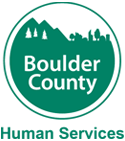Health insurance is a plan you buy that helps pay for medical care for you and your family.
Key Health Insurance Terms
Premium: The amount you pay monthly for health insurance.
Deductible: The amount you pay annually before your insurance begins to cover expenses.
Copay: A fixed fee you pay for specific services, such as a doctor’s visit.
Out-of-Pocket Maximum: The maximum amount you will pay in a year for covered care.
Network: The group of doctors and clinics associated with your plan. Receiving in-network care generally incurs lower costs.
Programs That Help Lower Health Care Costs
There are government programs that can make health care much more affordable. These programs depend on things like your income, age, immigration status, or job situation.
- This is the state’s official place to shop for and buy health insurance.
- You may qualify for help paying costs if you don’t qualify for Medicaid or coverage through a job.
- This program helps undocumented Coloradans get health insurance.
- Anyone can buy a full-price plan, but some individuals or families with household income under 150% FPL can get a special low-cost plan with a $100 deductible per year.
For people 65 and older who worked and paid taxes for about 10 years. It offers different options for health insurance at lower cost.
Helps people with Medicare pay for premiums and other costs.
These are free or low-cost health insurance programs for people who meet the eligibility criteria. They cover many services, including medical, mental health, and reproductive health care.
For undocumented people. Covers life-threatening emergencies and family planning services.
Offers discounted hospital health care services to people who qualify.



